La Coruña is a beautiful city in the Galicia region (Spain), next to the Atlantic Ocean, next to the Atlantic Ocean, full of treasures.
La Coruña, in Galician A Coruña, is a Spanish province located in the northwest of the country, in the autonomous community of Galicia. Its capital is the city of La Coruña.
It limits to the north and west with the Atlantic Ocean, to the east with the province of Lugo and to the south with the province of Pontevedra.
The climate in the province is of the European Atlantic type, characterized by mild temperatures.
The demonym of those who live in La Coruña is A Coruña and A Coruña.
As in all Galicia, the languages are Spanish and Galician.
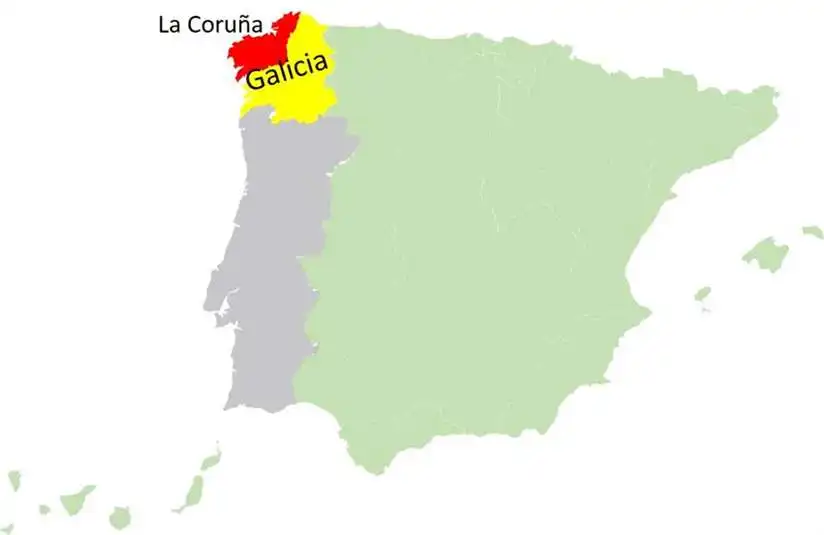
The centre of the city of La Coruña extends over a peninsula connected to the mainland by a narrow isthmus, which is why it has two different seafronts:
- the port (towards the estuary of La Coruña).
- and another of the open sea, towards the Orzán cove, on which the main urban beaches (Riazor and Orzán) extend.
Tower of Hercules
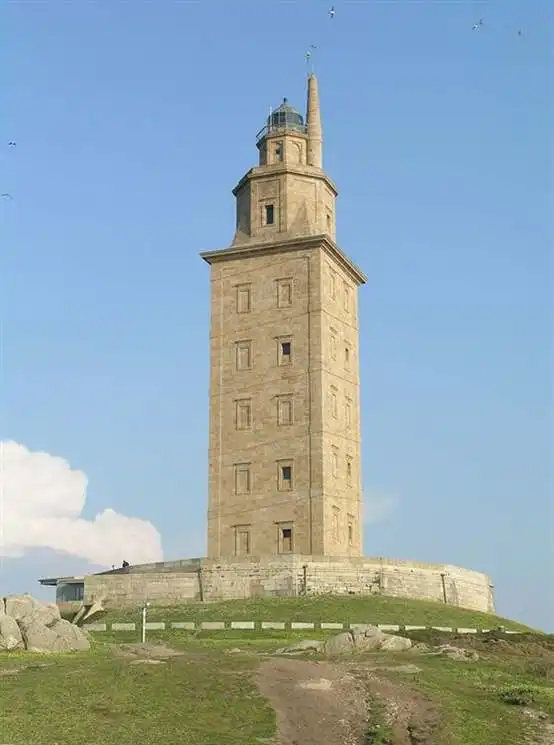
The Tower of Hercules is the oldest Roman lighthouse in the world still in operation.
Previously it had a circular floor plan, its total height is 55 meters and it dates from the 1st century AD.
The Tower of Hercules was declared a UNESCO World Heritage Site in 2009.
In addition, there are:
Domus, or the House of Man is one of the city’s interactive museums and allows us to see up close how the human body works.
The House of Sciences is a scientific museum, which also includes the Planetarium.
Aquarium Finisterrae, the House of Fish, where we can find marine species typical of the Atlantic Ocean, as well as exhibitions on tropical species, seals and a botanical garden.
Video de La Coruña (Galicia)
Within the province, La Coruña has a lot of treasures and curiosities to discover.
Here we show you some of them.
Cascada del Ézaro
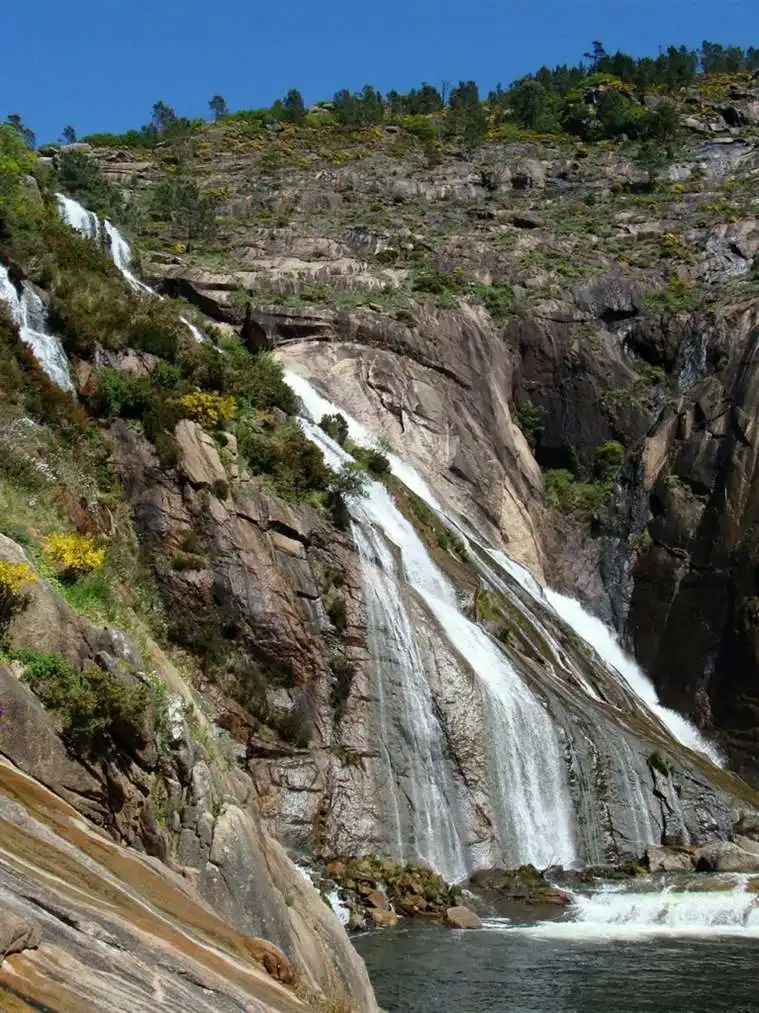
The Ézaro waterfall (in Galician: Fervenza do Ézaro ), is a waterfall that forms the Jallas river at its mouth into the sea.
It is located in the municipality of Dumbría, province of La Coruña.
The difference in level of the last section of the Jallas River is 155 meters, the water falling 40 meters high down the mountain until it hits the walls of the canyon located at the foot of Mount Pindo.
The Cathedral of Santiago of Compostela
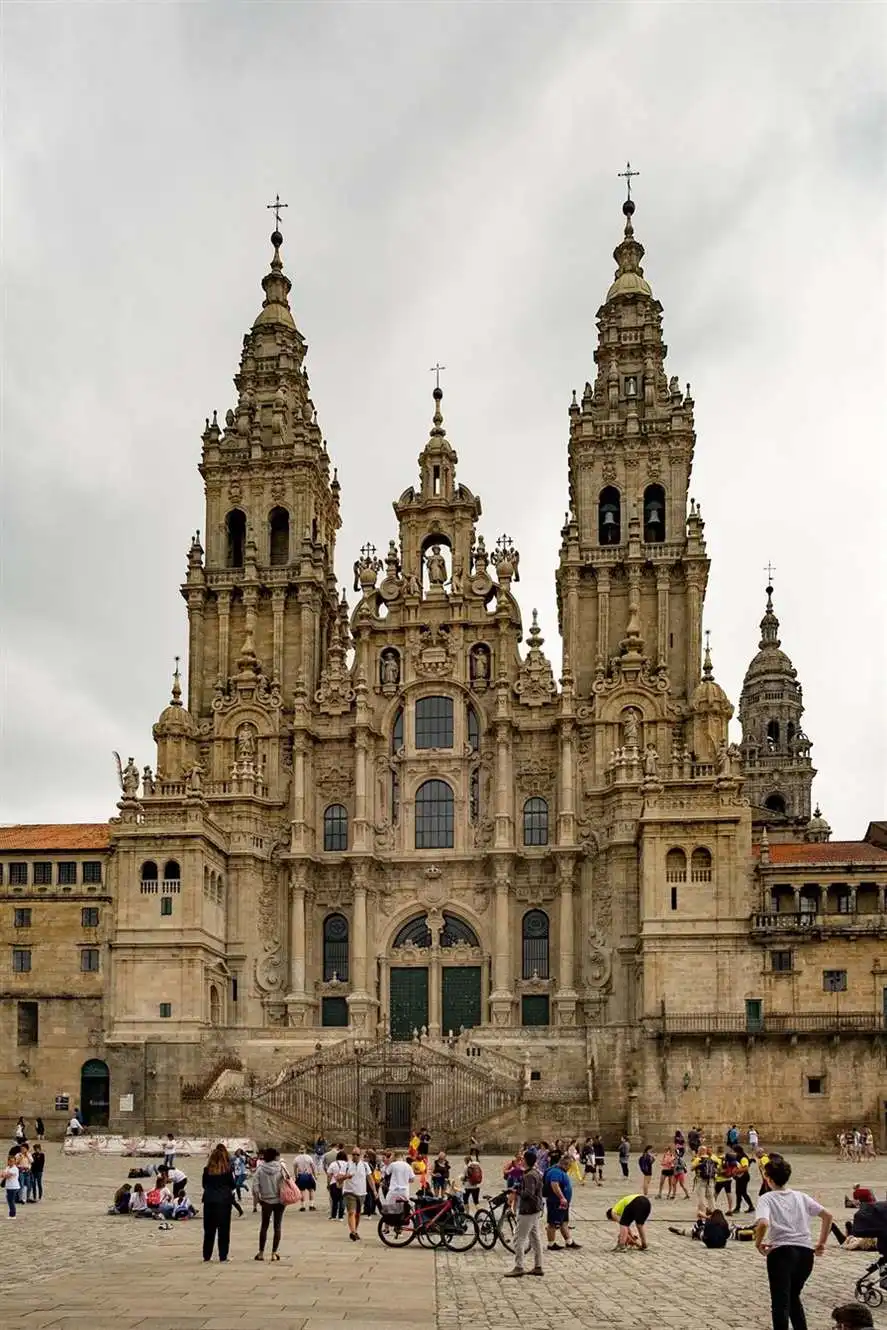
Santiago de Compostela is a municipality in Spain, in the province of La Coruña.
It is also the capital of the autonomous community of Galicia.
The old city of Santiago is a UNESCO World Heritage Site since 1985.
It stands out for being one of the three great pilgrimage centres of Christianity, along with Jerusalem and Rome, since tradition says that the Apostle Santiago the Greater was buried there.
Of special artistic importance is its cathedral, dedicated precisely to the Apostle Santiago, which is the destination of the hundreds of thousands of pilgrims from all over the world who complete the Camino de Santiago every year.
Cliffs of Vixía de Herbeira

The Vixía de Herbeira cliffs are the highest cliffs above sea level in continental Europe, with 613 meters above sea level.
They are located in the Sierra de la Capelada, between the municipalities of Cariño and Cedeira, in Galicia, Spain.
The DP-2205 road that connects Cariño with Cedeira with the village and sanctuary of San Andrés de Teixido, borders these cliffs in its highest section.
Church of San Martino
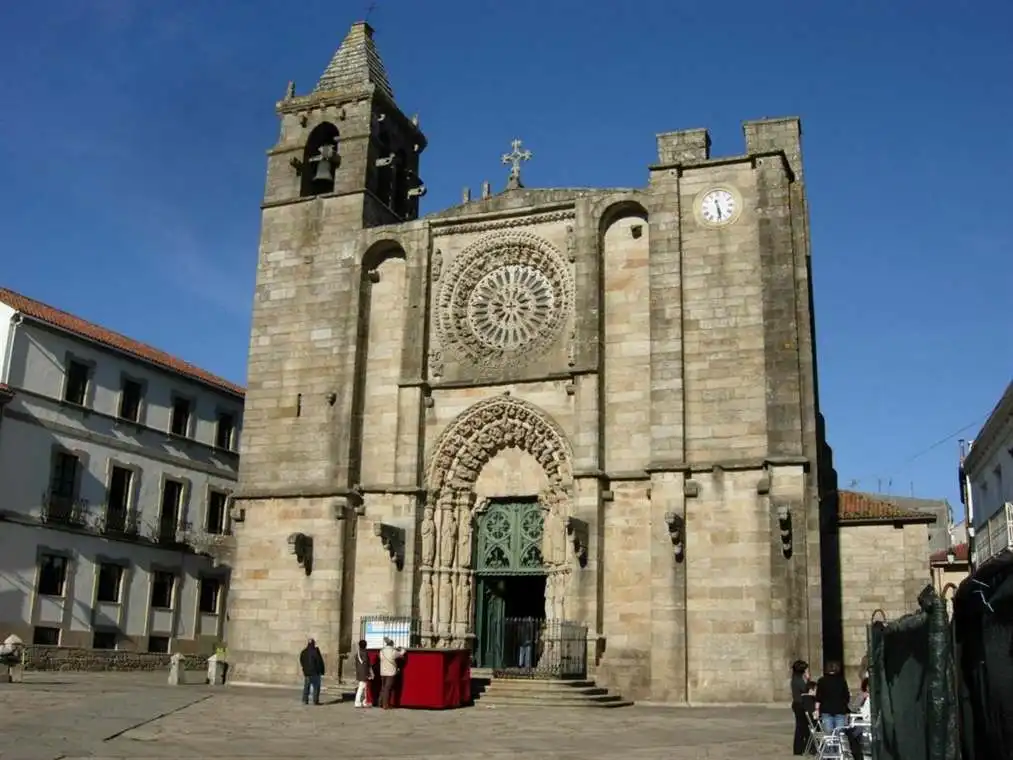
Noya (Noia in Galician) is a quiet and beautiful medieval town famous, among other things, for its Medieval Fair in which the city is decorated and the inhabitants dress up in period costumes.
It also has a curious church with a single tower, the church of San Martiño, finished in 1434, with the appearance of a fortress.
Another of the treasures to be discovered in La Coruña is Fragas de Eume, spectacular.
Fragas of Eume

Fragas do Eume
Half natural park, half enchanted forest.
When you enter the Fragas do Eume, an ancient forest with an area equivalent to about 10,000 soccer fields, the truth is, you forget that it is a natural park.
As you skirt the River Eume along paths covered by oaks, chestnuts, and moss, while discovering lost monasteries or crossing suspension bridges, you might as well come across a goblin or a nymph.

Fragas of Eume
In Galicia, a fraga is a dense forest, so thick that it almost does not let light in and, those that do, filter through the leafy tangle of tree branches.
The vegetation, water and climate of Fragas do Eume, are characterized by humidity and temperature that remain stable most of the year. They are the pillars of the proliferation and maintenance of a complicated and rich ecosystem.
For an average walker, the environment is special and the sensation, when you enter its paths and furrows, is that of entering a lush, mysterious and ancient forest, very ancient.
This is true, look closely, because you are walking among fern species that have remained intact since the Tertiary Period –just after the passing of the dinosaurs– as Fragas maintained the subtropical climate of that time.
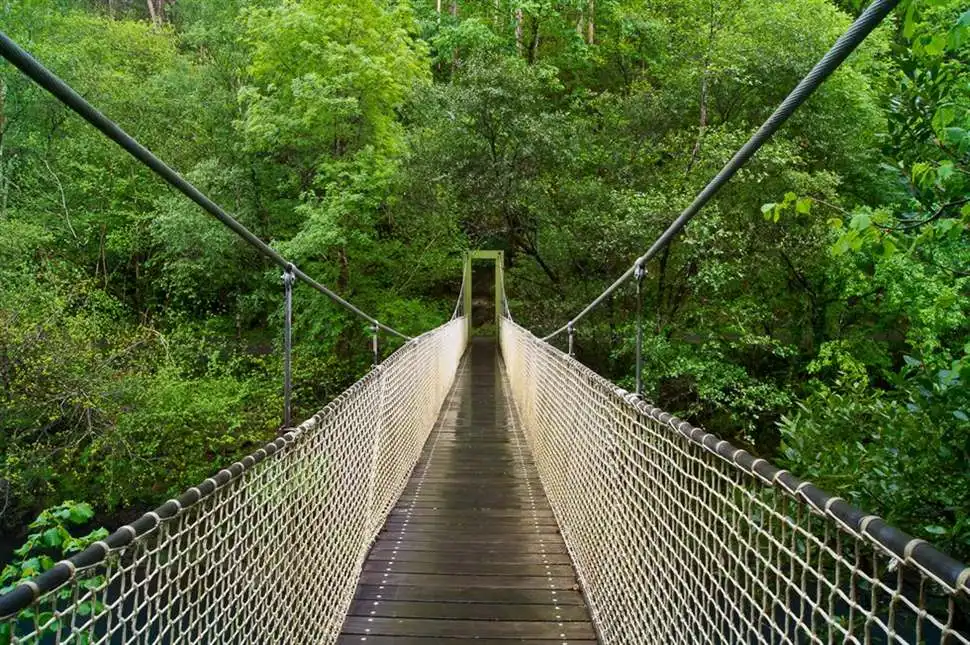
◊
Traditional dance music video. Jota and Muñeira.
La Coruña treasures to discover
More information and references:
- wikipedia.org -La Coruña. Available Here
- wikipedia.org -Tower of Hercules. Available Here
- unmundoinfinito.com -Noya. Available Here
- flickr.com -Pablo Herrero. La Coruña, Riazor Beach and Orzán Beach. Original image available here
- pixabay.com -Jesús Fdz Bande. The Tower of Hercules. Original image available here
- pixabay.com -David Mark. The Ezaro Waterfall. Original image available here
- pixabay.com -krystianwin. The Cathedral of Santiago of Compostela. Original image available here
- creativecommons.org -Chatty. Cliffs of Vixía de Herbeira. Original image available here
- flickr.com -Jose Antonio Gil Martinez. Church of San Martino de Noia. Original image available here
- creativecommons.org-MGM Photos. Fragas do Eume-Caaveiro Riachuelo. Original image available here
- flickr.com -Neticola. Fragas do Eume. Original image available here
- flickr.com -r2hox. Fragas do Eume. Original image available here
- youtube.com – Coruña Tourism. Discover A Coruña. Available Here
- youtube.com -Galician Center. Jota and Muñeira. Available Here
In the vibrant landscape of flamenco, “Noches de Bohemia” by Navajita Plateá stands as a timeless masterpiece, weaving together the rich tapestry …
This is an advanced flamenco course offered by Bailaor Marco Flores and the National Ballet of Spain. Flamenco in essence, in a …
Pronouncing the “R” sound like a native Spanish speaker can be challenging for many learners, especially those whose native languages don’t contain …
This flamenco flashmob in London shows you how flamenco, with the only beginning of clapping, gradually increases with dance, guitar and singing, …
Antonio Banderas, a name synonymous with charisma and versatility, has etched his place in the annals of cinema. From his humble beginnings …
Breakfast in Spain is usually very varied and diverse, in which coffee occupies an important place. Spaniards eat coffee with milk or cola …
It is a cosmopolitan, cultural, modern, touristic, and attractive city that surprises and seduces. It perfectly combines culture, magnificent beaches, history, excellent …
La Coruña is a beautiful city in the Galicia region (Spain), next to the Atlantic Ocean, next to the Atlantic Ocean, full …
In the world of desserts, few creations evoke the same level of culinary satisfaction and indulgence as the exquisite Egg Flan, a …
Paella is a very tasty and nutritious Spanish dish that now you can cook at home however you like. Tasty Varied Paella …
The Autonomous Communities of Spain are the parts into which the Spanish territory is divided and each one has its own characteristics …
The origin of the word España (Spain) is Phoenician and dates from the second millennium BC. Its meaning has several hypotheses. The …
Cádiz, located in the southernmost point of Spain, is an ancient city, deep, happy, sunny, open spaces, unhurried, sea and mountains, the …
Spain, located in southwestern Europe on the Iberian Peninsula, is a country rich in history, culture, and diversity. From its vibrant cities …
Museums and Art in Spain, with its rich cultural heritage and diverse artistic expressions, is home to a myriad of museums that …


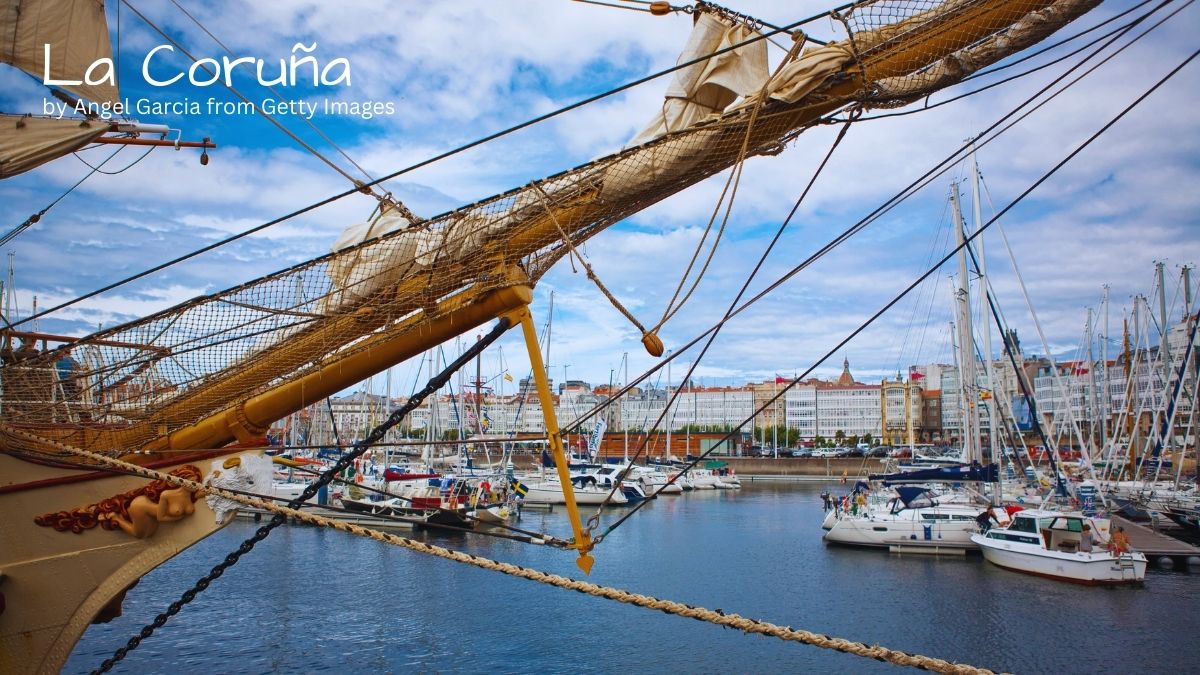
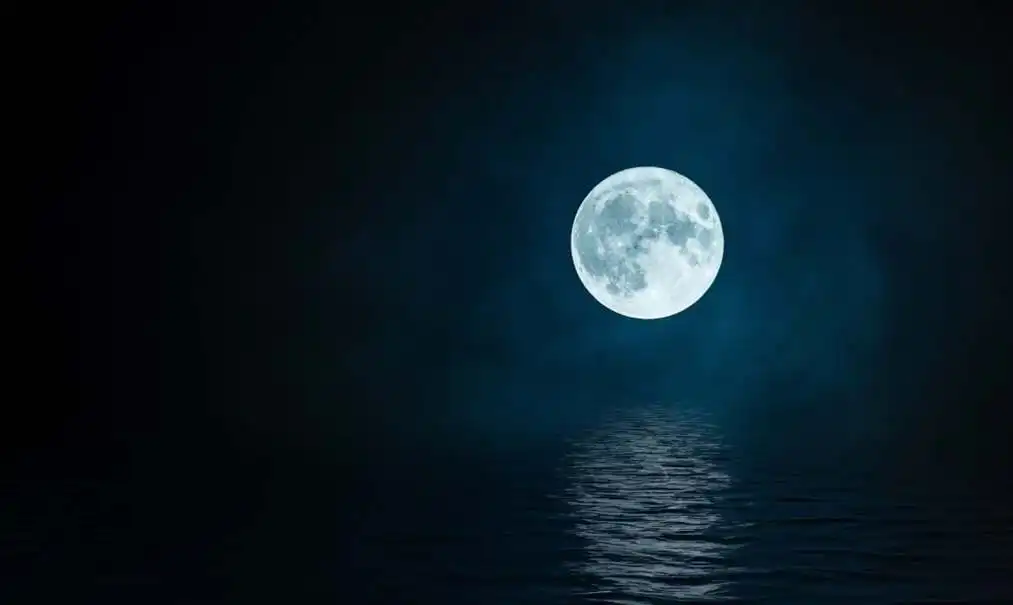
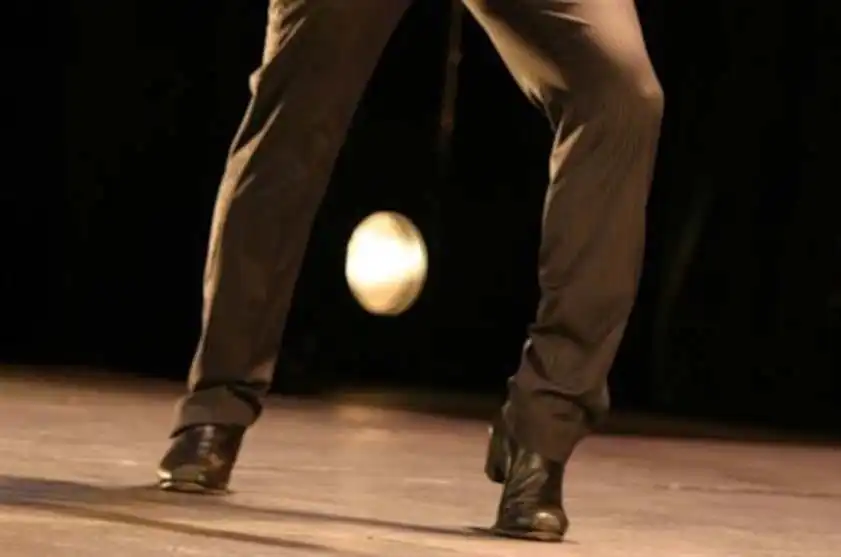
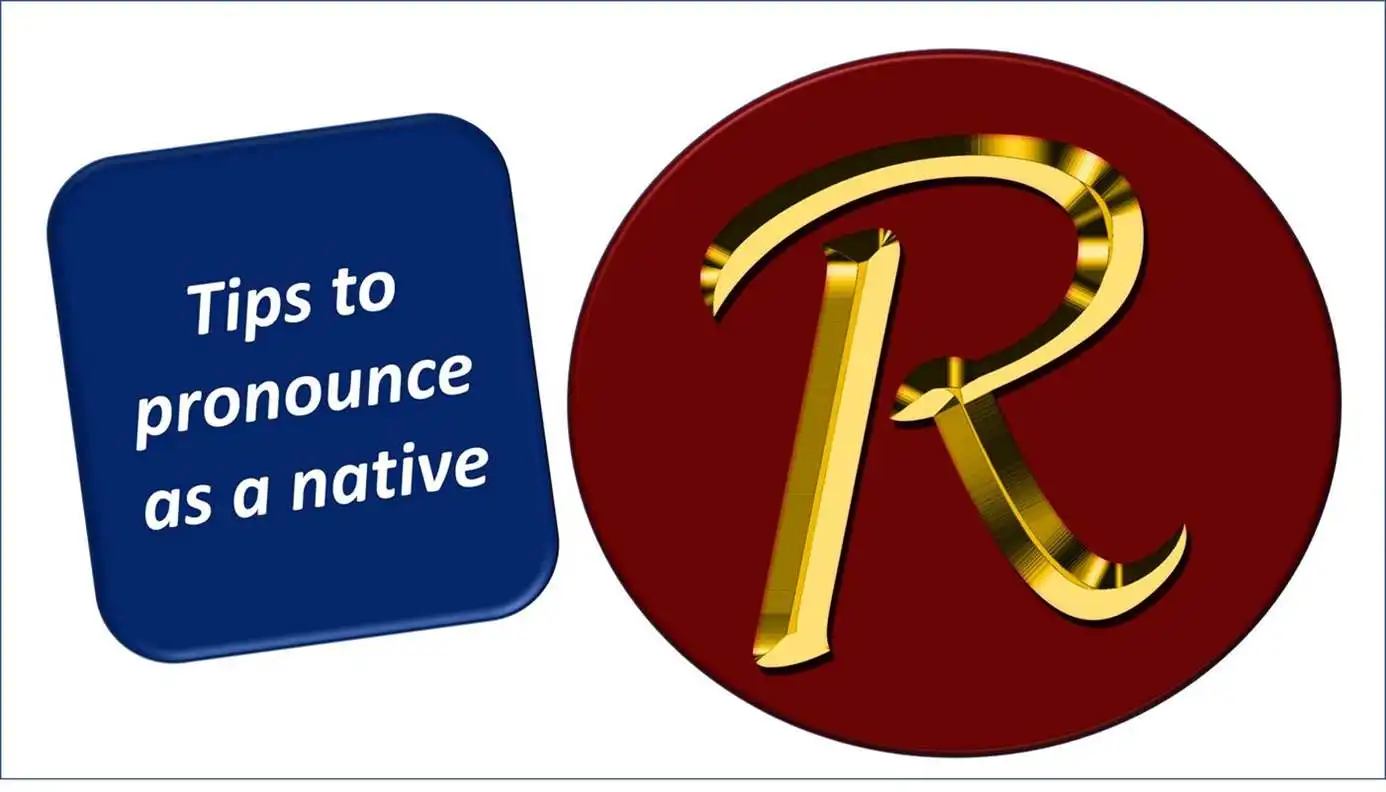
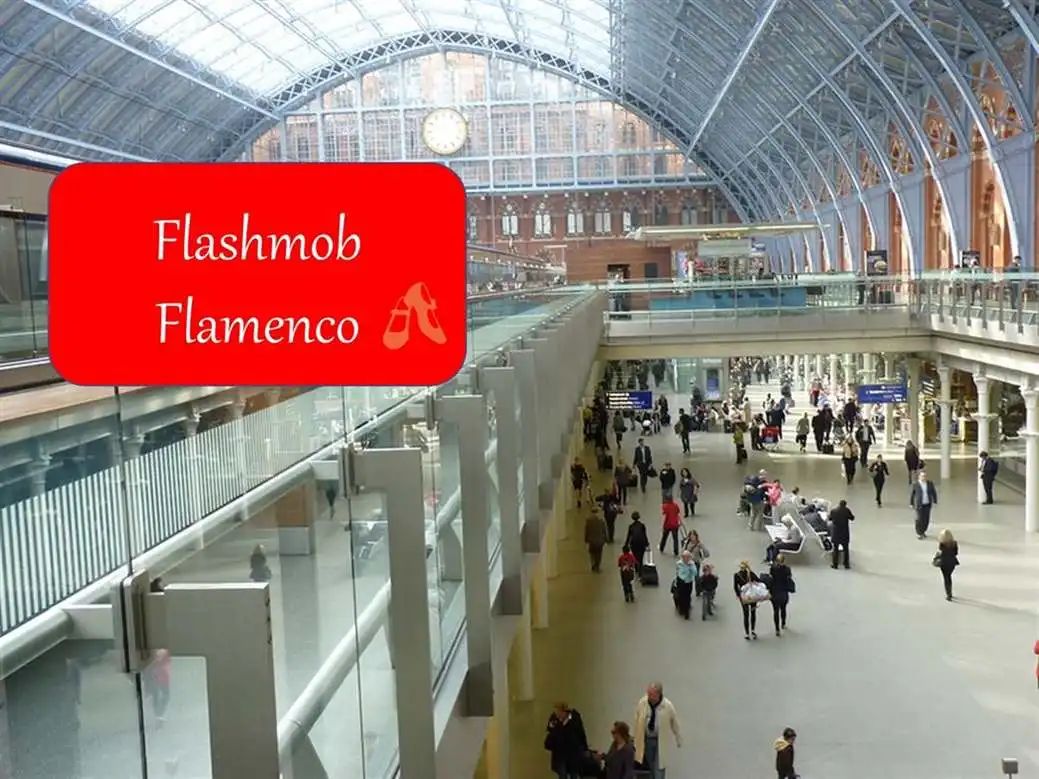

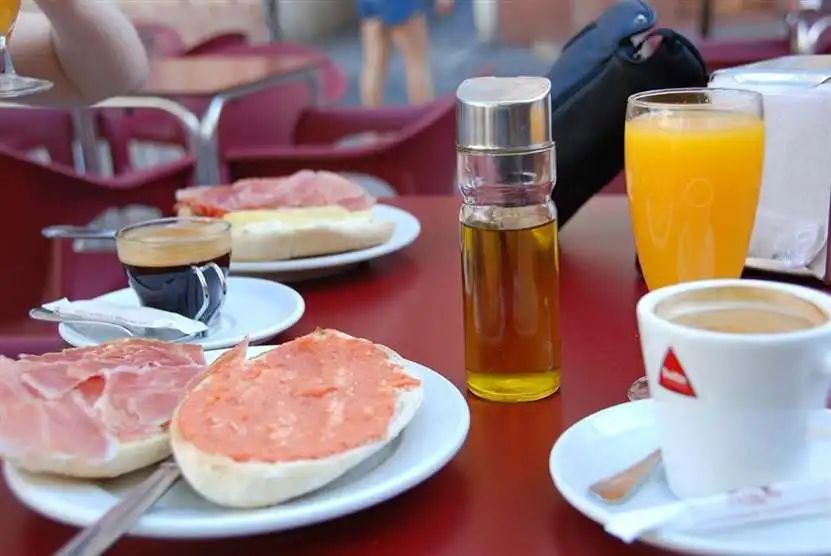
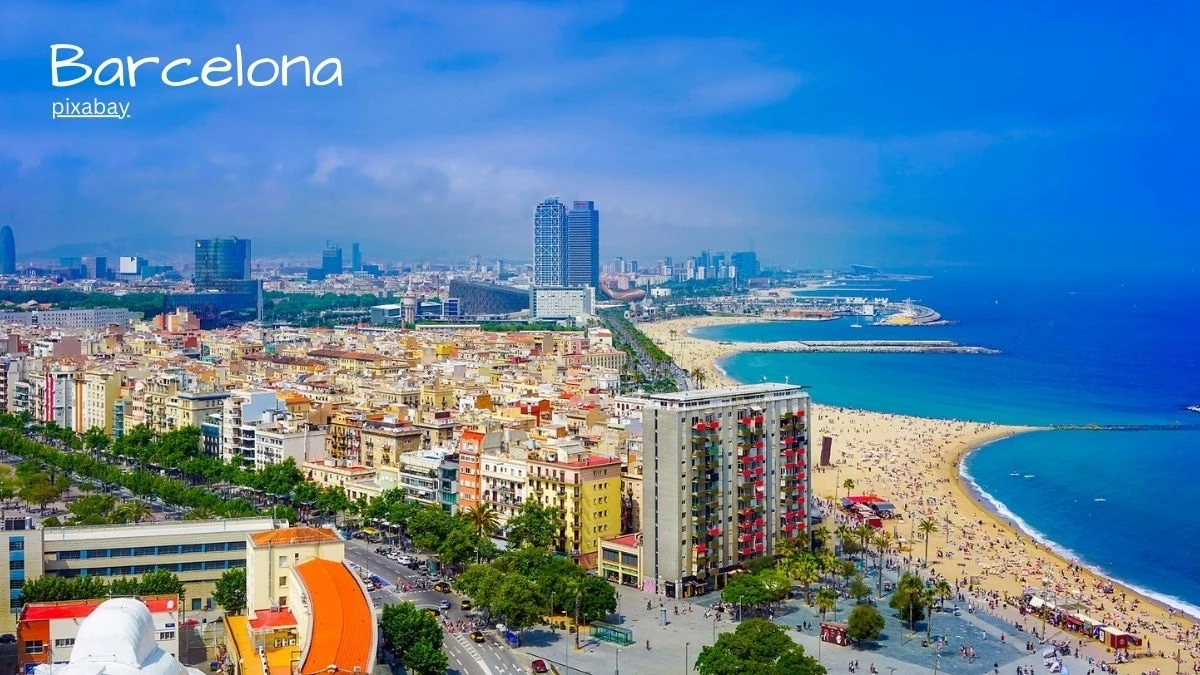
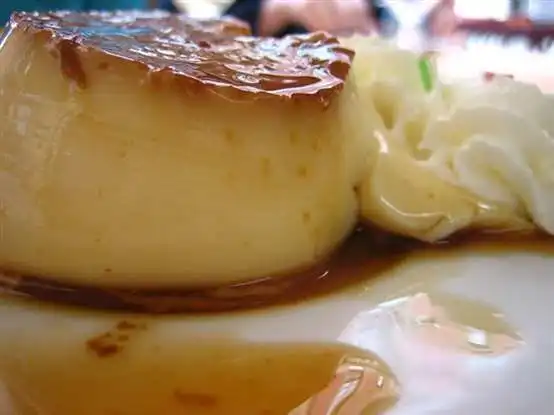
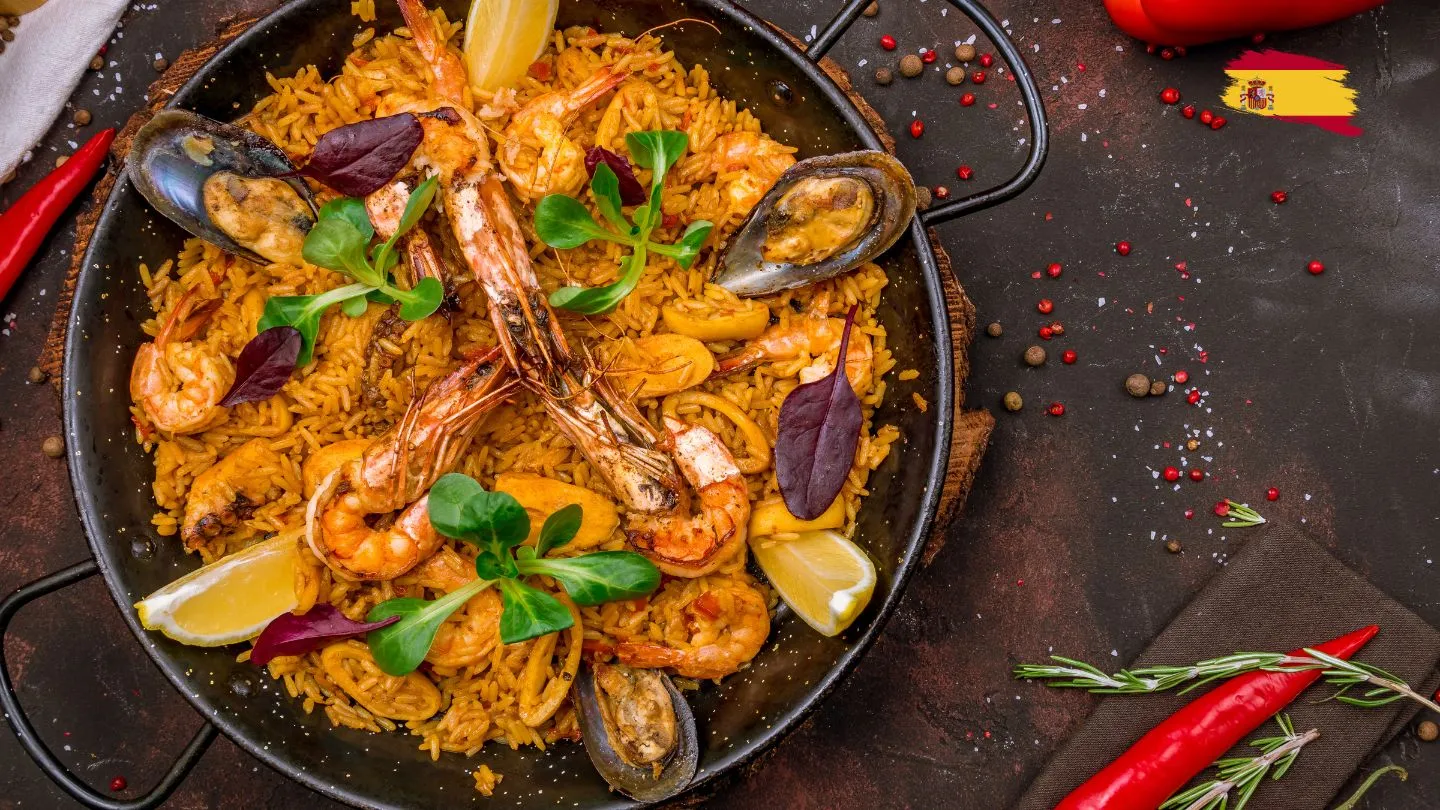
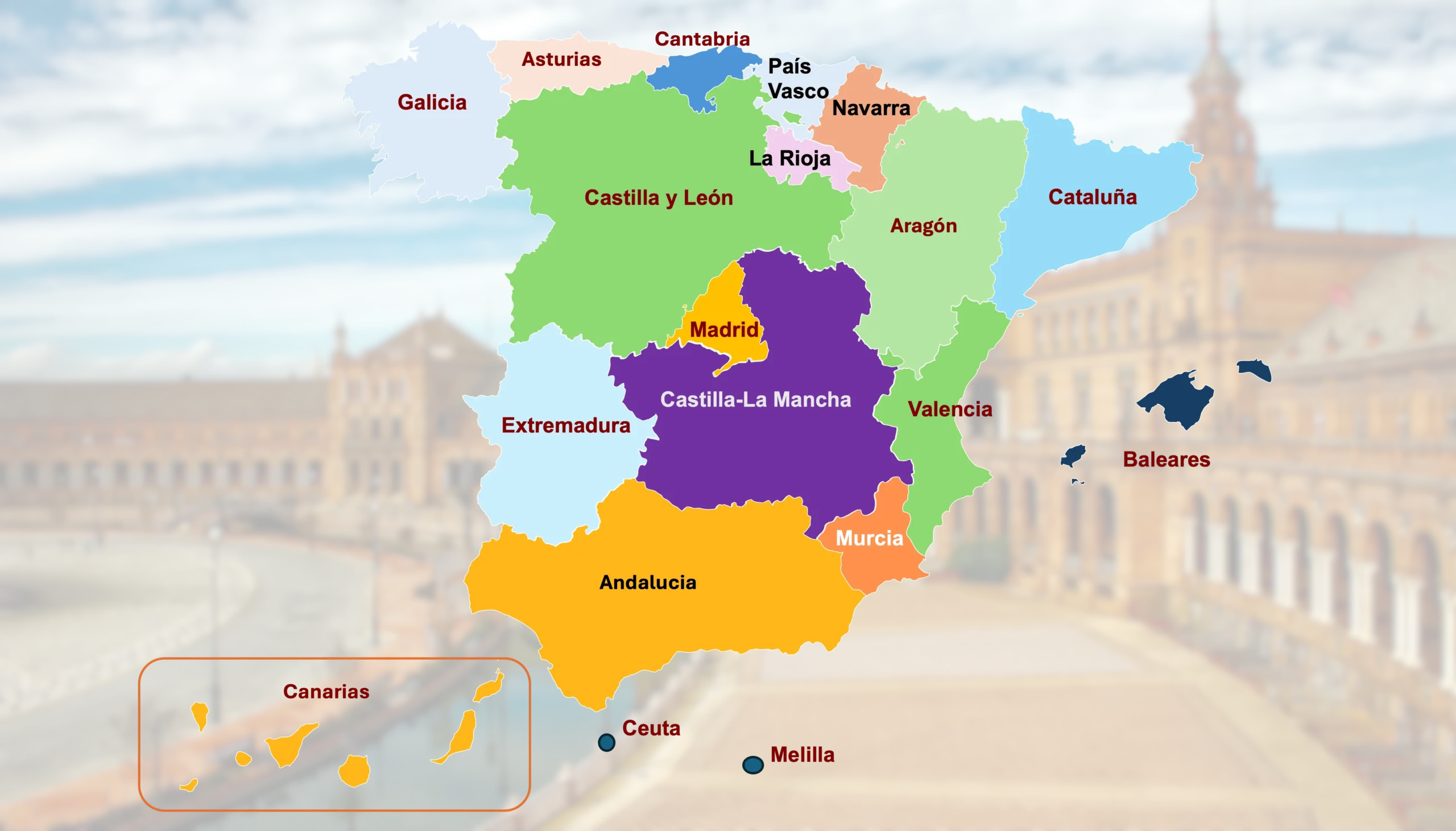
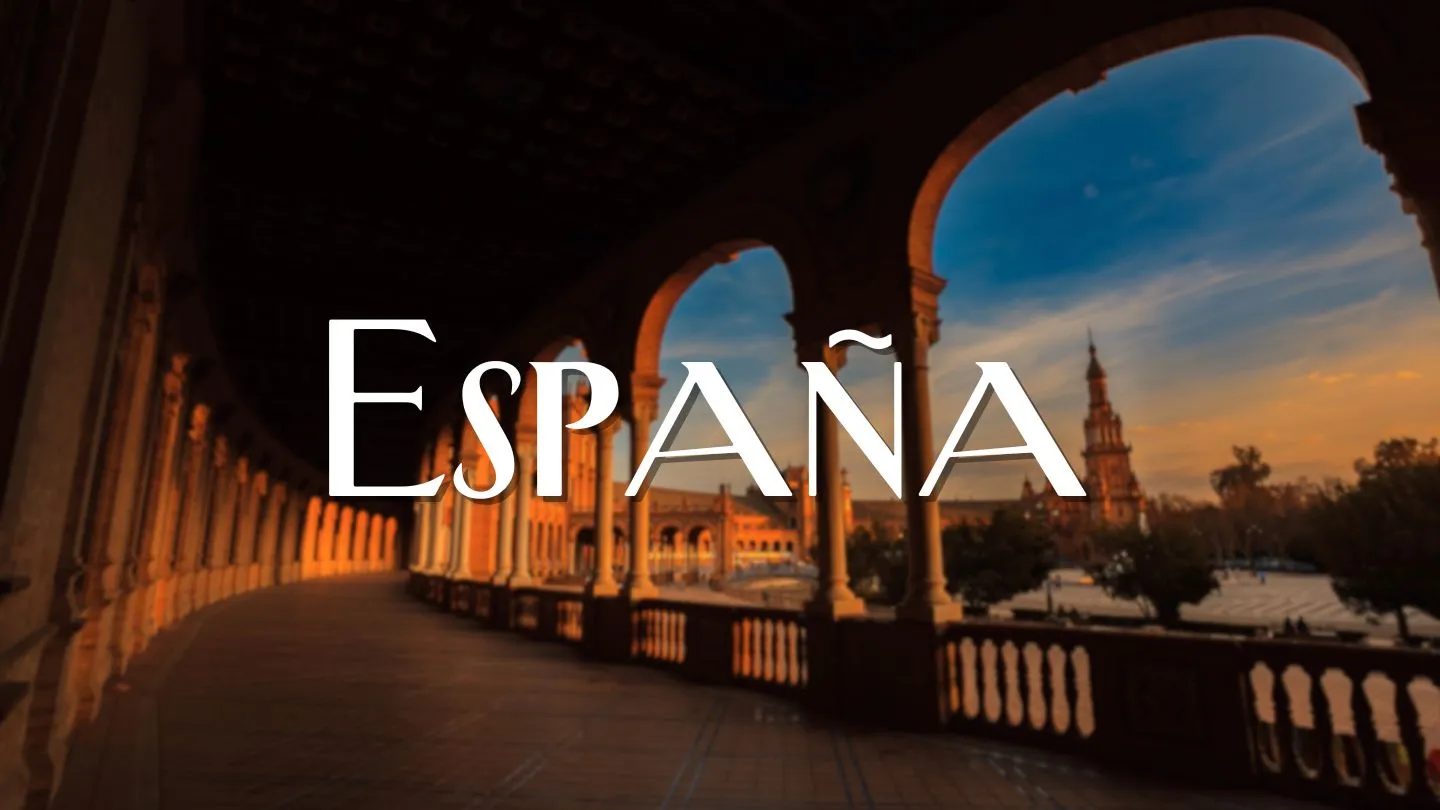
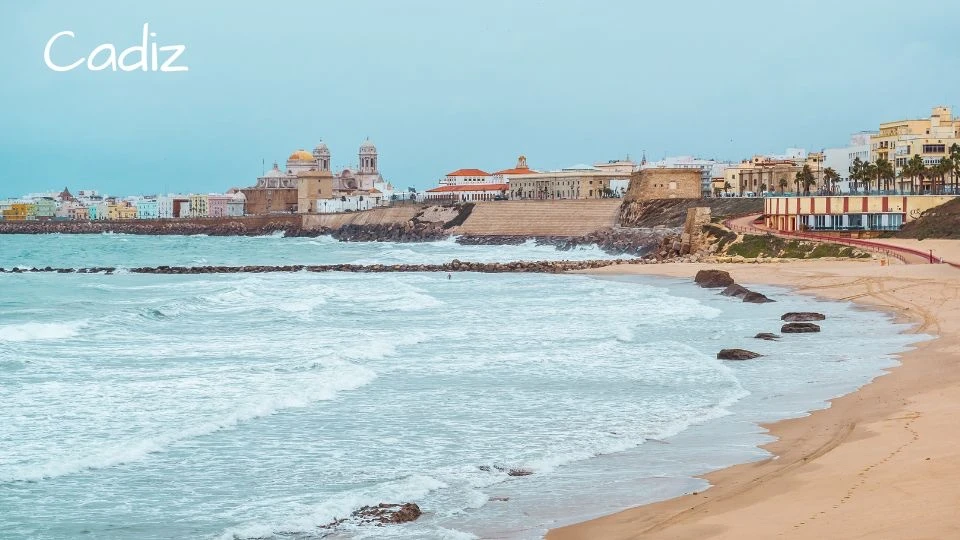
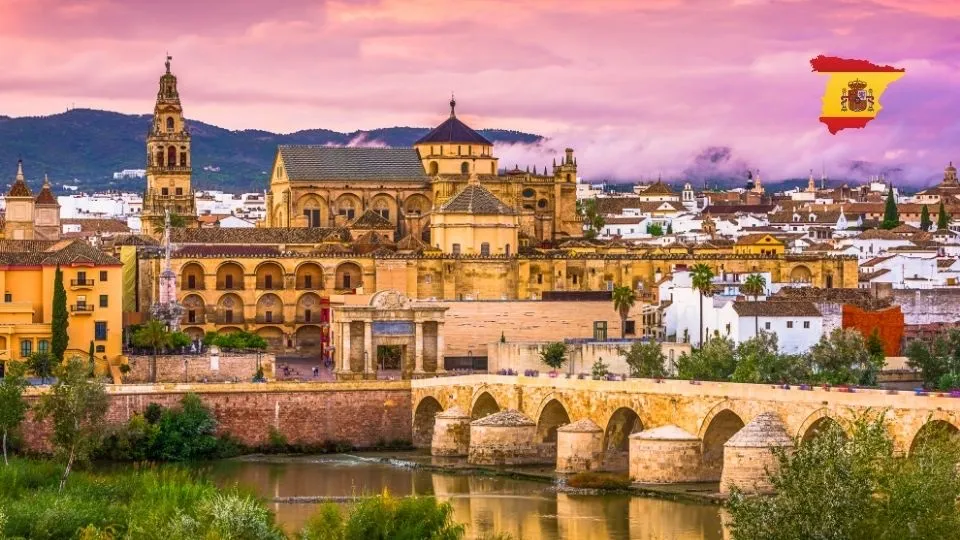
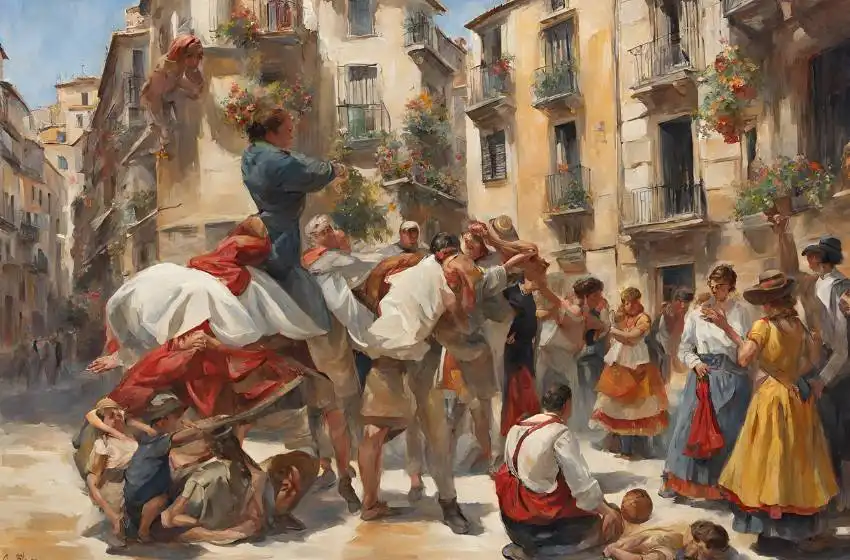
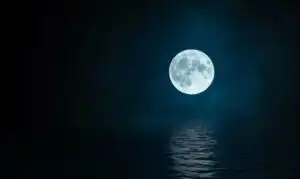
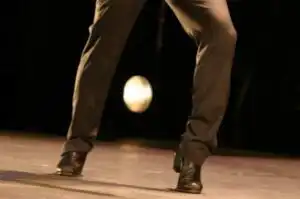

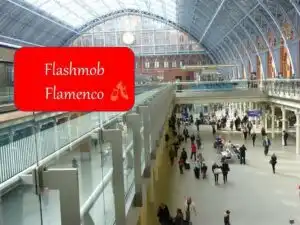


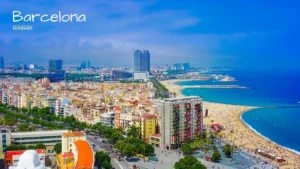
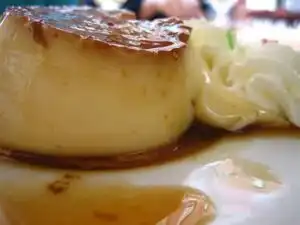
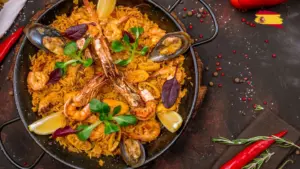
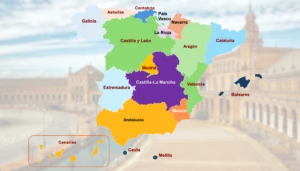
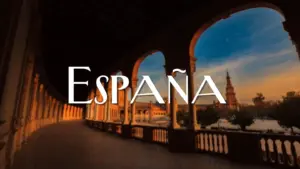
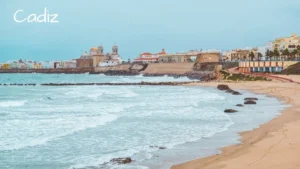
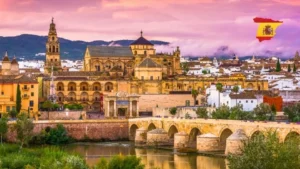
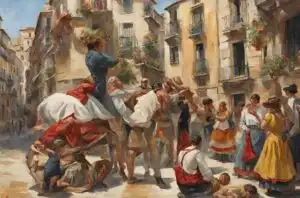
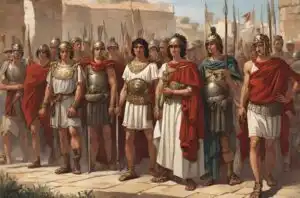
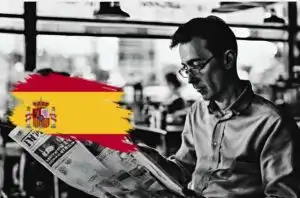
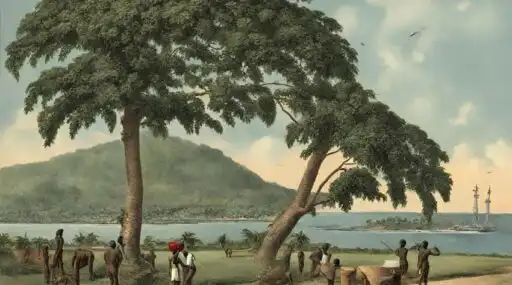
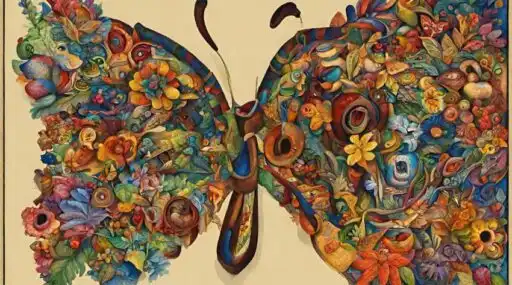



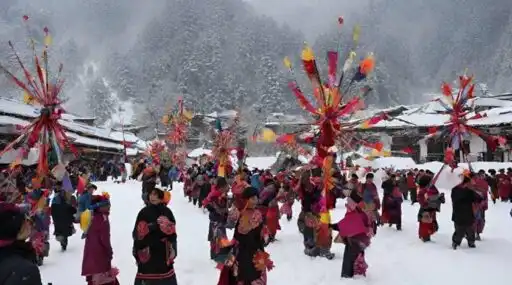
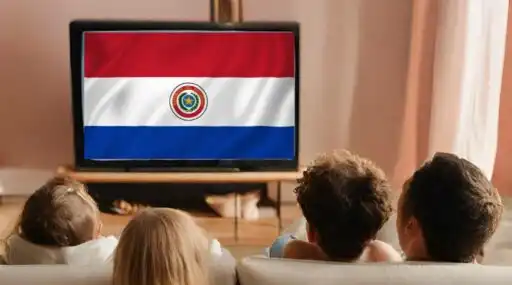
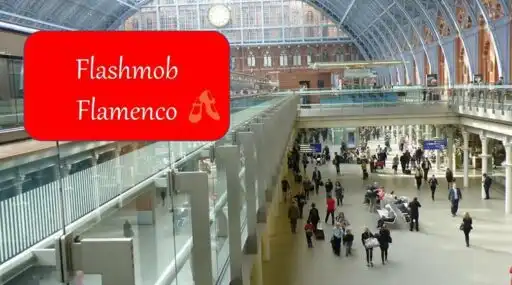
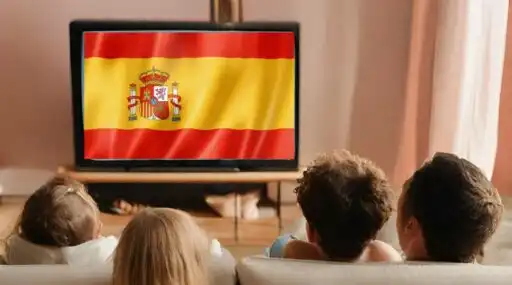


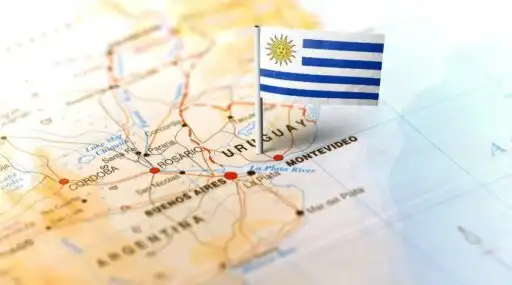
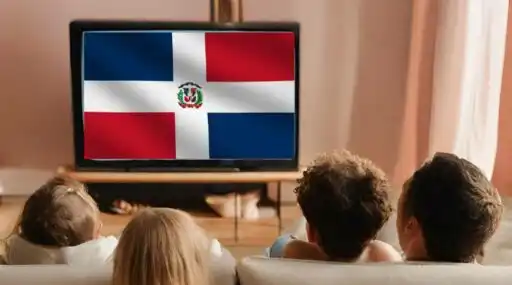
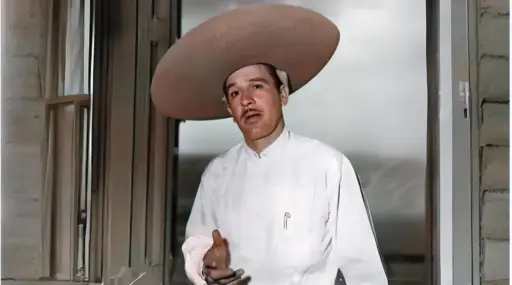

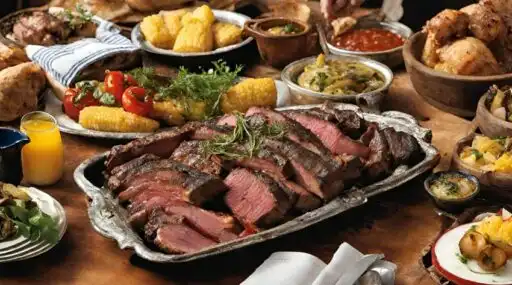


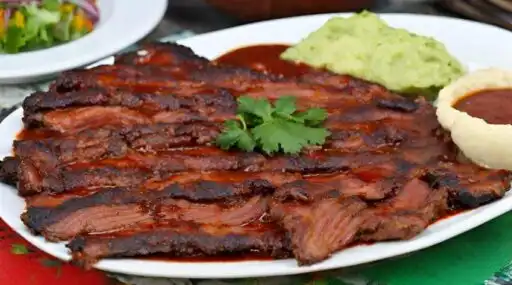
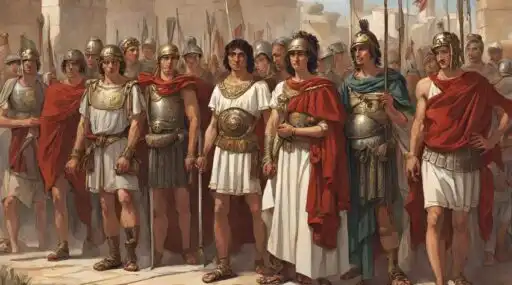
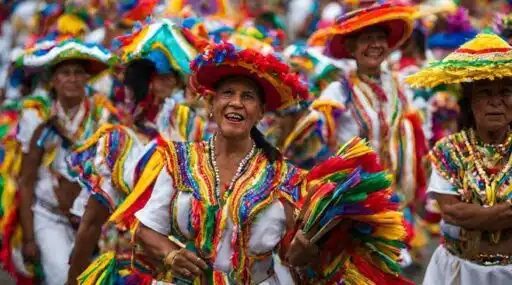

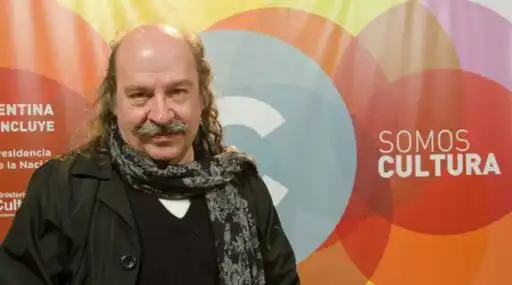



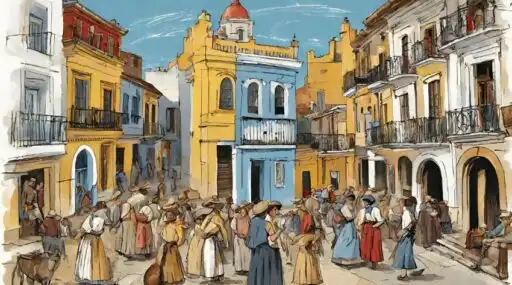



Leave a Reply